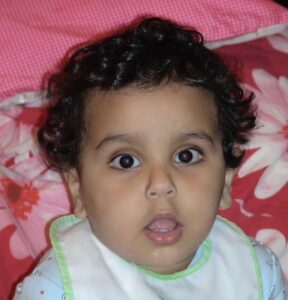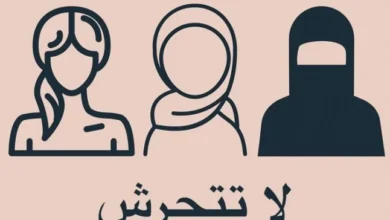Zeina Bader Bin Essa: Adopting, nurturing, and uplifting

By Nourah Al-Oseimi
Exclusive to The Times, Kuwait
To adopt can mean one of two things (according to Oxford Languages), it can mean to “choose to take up, follow or use”, or it can mean “legally take (another’s child) and bring it up as one’s own”. In some ways, I feel that the definitions are interlinked through the issue of choice. Unlike childbearing, which can happen accidentally sometimes, there is nothing accidental about the process of adopting a child. It is a structured, meticulous, and well-thought-out process that is driven heavily by one of many key factors, including a parent’s choice to adopt.
Ironically, however, it is the child in this situation who is robbed of their choice. Children do not choose to be put up for adoption. And yet, so many beautiful stories emerge from adoptive children who grew up with an entirely different household from what they were actually born into.
Zeina Bader Bin Essa identifies herself as an “advocate of openness in adoption and an adoptive mum in Kuwait.” Zeina is also the proud founder of Roots Kuwait, a non-profit organization that aspires to spread awareness and acceptance towards adoption in our region. What stood out to me the most prior to meeting Zeina for the first time was the short but powerful statement that she has written in her Instagram biography “A family based on love & created by adoption”. And so, I had to learn more.
“I adopted Noor 16 years ago and at that time it was something new and everyone told me don’t talk about it, it’s not the right time. Three years later when I adopted Abdulwahab, things were a little different. There are some differences between adoption as a concept and what we do in Kuwait and Islamic countries overall.
“When you adopt, a child can take your family’s name and is allowed to inherit what you leave behind, however in our culture, adopted children don’t take our last names, nor are they given access to any inheritance, and this is due to religious factors.”
Zeina proceeded to explain to me the entirety of the process starting at when the child is initially found until the child is paired with his/her adoptive family. Heartbreakingly, newborn babies are sometimes abandoned outside of mosques or supermarkets until someone finds them and calls upon local authorities to rescue them. Due to this and a lack of identification in most cases, it is nearly impossible to determine where the child’s health records are (if there are any) and what issues do prospective adoptive parents need to know in relation to the child’s genetic history.
Zeina then spoke to me about the origins of Roots as an organization and the series of events that led her and her fellow adoptive peers to realize the importance of fostering a community of support, knowledge exchange and open communication. “We wanted to protect our children and learn how to cope with this new aspect of our lives. We communicate directly with the Ministry of Social Affairs and Labor. The Ministry remains responsible for all adoptive children until they reach the adult age of 21. It is a very good system that protects our children.”
One question remains glaringly obvious… At what point in time do we speak to the child about the nature of his/her upbringing? When is it the right time to tell them they are adopted and how does an adoptive parent go about addressing such a sensitive subject?
Children are curious by nature and Zeina elaborated that the adopted child inherently senses that something is different about their upbringing and so at a certain age, they begin to ask questions. Difficult questions. Existential questions. Who am I? Where did I come from? Where are my parents? Are they coming back? Why did they leave? And the most dreaded statement of all…you’re not my real parent.
“I started reading one book after the other, you need to educate the adoptive parents, and this is a difficult process for parents because they always believe they know what’s best for their child. I took it the other way round; we need to think about how those kids feel to create awareness. Don’t hide the adoption. I depended on books and the Internet. I would even contact the authors of the books and you can find many of them on social media or on blogs. I would email them, and they helped me so much. In fact, when I asked one of the psychotherapists who specializes in this subject to provide Arabic captioning for her videos, she was happy to help in any sense.”
Zeina talked to me about the support group she created in her own home that would meet every month and during their meetings, she would talk about something that she read. According to Zeina, some mothers would break down and cry during these meetings because the process is very overwhelming. “I slowly began to educate them about the child’s feelings and what they like, and dislike and you need to acknowledge and respect the differences.”
“It’s more about the children than us as mothers, we should attune to the kids and adapt to their ways to help them feel comfortable so that they can feel a sense of belonging.”
Although Roots was initially founded as an organization called ‘Special Mothers’, Zeina came to realize that her work transcends the communities of mothers and looks at adoption as a broader concept and how it shapes the fabric of society overall. When deciding on the new name, she included her two children in the process and her daughter happened to select the name Roots for the following reason “you need healthy soil for the child to grow and you need a shelter and a tree can be a shelter.” Zeina connected to this reasoning strongly and so she rebranded Special Mothers to Roots around one year ago.
When discussing this, and upon learning about how Zeina’s work set the tone for adoption in the Arab region as a whole and how often she is invited to speak at regional and global events on this very subject, I perceived the name ‘Roots’ in a completely new light — I imagined Zeina’s work as the foundation for a healthy attitude and outlook on adoption in our part of the world and out of this healthy foundation, branches of a tree would grow out that represent different parts of the Arab region where the concept of adoption is embraced, celebrated and integrated within a high-functioning society.
“We started as 3 ladies, and now we’re more than 60-70 ladies in Kuwait. We also have members from the GCC joining our support group. They fly in to attend the support group meetings. Since COVID, we’ve welcomed members from Egypt, Tunis, Morocco and Djibouti and all across the Arab world.”
As our conversation was nearing its close, Zeina briefed me about the criteria for adoption in Kuwait, which stipulates that only a Kuwaiti family unit (a married couple) would be given priority for adoption and that would be based on registering their interest with the necessary documentation at the Ministry of Social Affairs and Labor. Single parent Kuwaiti households can register their interest however, they would be allocated a low-priority ranking. Current laws and provisions in Kuwait do not allow for expatriates to adopt.
Zeina told me a lot of wonderful things about her life, her children and how much she loves being an adoptive parent. There were moments throughout our conversation where I felt overcome with emotion because her story and the story of all adoptive parents is driven by an innate desire to nurture, to care and to love another human being unconditionally. A human being who, like you, like me, deserves the right to be held by a loving parent, to be guided through life and to be reminded of how remarkable they are day in and day out.
Nourah Al-Oseimi is a 28-year-old Kuwaiti who holds a Master’s degree in Business Administration. Nourah has worked in different places such as the Central Bank of Kuwait and the United Nations. She serves as a free-lance contributing writer to the Times Kuwait – Newsmagazine. Her column – Essentially Kuwaiti (https://timeskuwait.com/news/category/interviews/essentially-kuwaiti/) – features an in-depth look on exceptional young Kuwaitis and their efforts towards the realization of a New Kuwait.

















